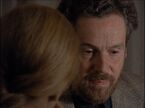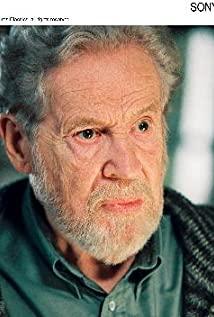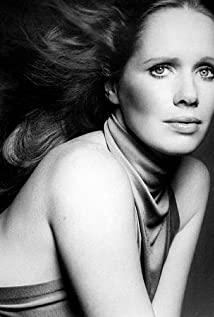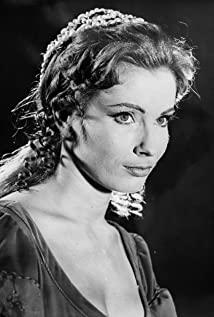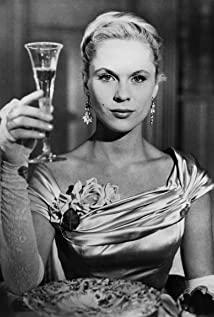In my opinion, Director Bo is not a director who likes to pretend to be literary. At least in the three films I've seen, he has something important to say. This time, the reality-oriented words he wanted to say were spoken by the heroine by reading her own psychological analysis. My memory is not very good, and I am too lazy to read the subtitles, so I will not excerpt. In short, his understanding of "gender and character" is exactly the same as Weininger's theory - of course I didn't say that he must have learned something from Weininger, I just said that Bo Dao is indeed trying to find a It explains all this calmly at a very high level, rather than limiting the scope of the questioning to "marriage" and describing the relationship between the sexes in a sensational way. Presumably he was trying to question "gender" itself?
Also, is it dark? It's obviously very optimistic, and it's not finished when you say that it's dark?
In 1971, Bo Dao married his last wife, which later turned out to be his longest-lasting marriage—and it would have been longer if she hadn't died before him. In 1973, the film series of the same name was released, which summed up the past of his personal life and looked forward to the future. I'm amazed that this bright ending actually predicts the stability of his fifth marriage, hope it's not just a coincidence.
Once again, the self-analysis of the heroine reading when the heroine is dozing is very important.
Another equally important line is that at the end, the male protagonist sincerely and humbly asks the female protagonist to "reduce your feminism a little bit", and the female protagonist agrees gently and graciously. In my understanding, this is the most natural extension of the theory described earlier - unfortunately Weininger was not able to find such an idea at the time to comfort himself, and died young (pure nonsense not to be taken seriously).
Hmm, thought I could add a little more spoilers. Since it is the director's summary and outlook on his married life, the various stages of the couple's relationship in the play, to a certain extent, should be a fragmentary depiction of a series of his specific marriage experiences. I'll continue to abbreviate it here:
Stage 1: A relationship in which happiness is taken for granted and all negative thoughts are left behind. Although this is stupid and lazy, as long as both parties are equally stupid and lazy enough, this relationship can be stable for a long time.
Stage 2: Unfortunately, the male protagonist is not stupid and lazy enough, so he deserted. In other words, the so-called first stage does not actually exist, because he has been pretending to be happy. A husband and wife relationship where one party is serious and the other pretends to be a husband and wife relationship can last for a long time as long as the pretending party is immoral enough, or pretending to be like enough, or the real party is stupid enough.
The third stage: But the man is tough enough to stand the feeling of cheating others but he can't suppress the boredom of the stupid life, and he directly shows his cards. The woman woke up like a dream, and when she knew that she was the one who had been deceived the longest, she cried to the point of blackening. In the few scenes after that, the woman was a bit at a loss. One moment she wanted to break the jar, and then she seemed to have regained her "reason", feeling that she had to cut her robes with this irrelevant man. She was still struggling. This situation seems to be similar to some grievance couples who are in the love stage. They will die at every turn, and any conflicts will be resolved at the end of the bed. Whether there is such a thing in marriage, I don't know.
The fourth stage: The woman has completed her own evolution, broke free from the gender shackles imposed on her by culture, and entered a mature female form. I praise her. As for the man, he hasn't changed much. His breakup with his cheating partner doesn't mean he's grown in any way. He was still far away, waiting for the heroine to catch up and have a meaningful conversation with him on an equal footing. And now, here she is.
The purpose of my illegal spoilers is to say that these states can exist stably as long as the conditions are right. If the quality of marriage can only be summed up after the fact, that is, if two people stay married for a long enough time, it is a good marriage, then these can be positive models. But unfortunately the first few states have not survived stably, so it becomes a negative example - it is ironic to say this. So, my proposition is that the quality of marriage is not necessarily related to its length. In other words, a long marriage is not necessarily a good one, but a good marriage must last a long time—someone who died young does not count. I'm glad to see that European audiences can be firmly moved by this film and leave decisively.
Of course, if the director can also take into account the meaning of "men's struggle against gender culture", it will be even better. Because although this thing does not suppress men as much as it does women, it definitely still exists. Shooting like this now, it seems quite macho.
View more about Scenes from a Marriage reviews





